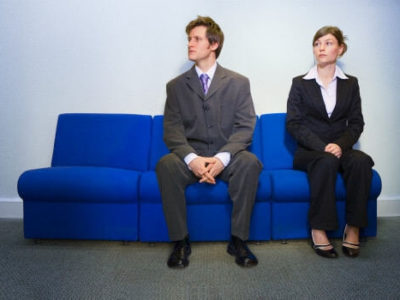Top dog, head honcho, the big cheese, senior. All of these guys and girls know exactly what they’re talking about after three years of experience. How are you supposed to suit up? They’re here to help!
“Impressions are made in the first few seconds after meeting somebody, and looking clean cut goes a long way…Get a haircut soon before the event you're dressing up for. Looking sharp isn't only dependent on what you're wearing; it's the whole package, so a nicely trimmed cut can really add to the professionalism of your look,” says Muncks. He also says, “[n]ever wear anything too exotic to an event, as cool as you might think it looks. Always stick to a traditional formal outfit. More specifically, I believe the most common look I've seen from my classmates is a charcoal suit and a white shirt, with a yellow or maroon tie, and black formal shoes. You'll look sharp and people will view you as a true professional.”
–J.P. ‘The Rocket Scientist’ Muncks, Aerospace Engineering, University of Virginia
“I think a lot of it depends on the industry you're in. When I go to conferences or interviews, I make sure to dress nicely. I wear a business skirt or pants, a blouse, generally a blazer and closed-toed shoes. I've always been told to dress for the job you want, not the job you have. Don't overdress (don't wear a prom dress), but people notice when you look professional.” Levitt also makes it clear that both you and the people around you need to be comfortable. “Make sure you're comfortable in your shoes. I bought a new pair of shoes on my way to an interview and tripped when I was walking out (in front of the interviewer). Wear them before you go (maybe even with the rest of your outfit) to make sure you can walk around. In addition, “[d]on't wear low-cut tops or short skirts. The first thing employers will see is what you're wearing,” and you certainly don’t want to give the wrong impression.
— Laura ‘The World-Changer’ Levitt, Broadcast Journalism, Elon University
“It's always better to be overdressed than not. Ultimately if you’re comfortable in what you're wearing and you feel like you fit in,” says Marmer, “you'll be able to focus more on the interview and worry less about what you're wearing. You're not going to get hired because of you're outfit, but if you look like you don't fit in, it can be harmful to your chances.” He adds, “[o]verall, I would say dress conservatively. An interview is not a chance to show how chic you are but for you to show off your credentials. Dress to fit in, not to set the trend. For guys, a suit with a plain shirt and tie should do the trick.”
— Andy ‘The Economist’ Andy Marmer, Economics, Vassar College
“It's always good to remember that you are saying a lot about yourself in your choice of clothing,” says Morrison. “They say that an interviewer makes a decision within the first 10 seconds of meeting someone, so that first impression means a lot! Aside from making eye contact and shaking someone's hand, the best impression is someone put-together and professional. So when you are going for an interview I would recommend being modest and remember that it is always better to be overdressed than underdressed! This doesn't mean you can't be chic or comfortable when going for an interview; just be smart about it—this would not be the day to try out the new heels or new makeup either. The point is for you to look like you know what you are doing and for you to be comfortable and confident, so that you can make the best impression! The clothes won't get you the job, but not having something appropriate on will certainly take you out of the running.”
— Laura ‘The Ivy-Leaguer’ Morrison, Human Biology, Health and Society, Cornell University
Shapiro explains that “dark jeans and a solid color button down are a good place to start,” but cautions that you should “[a]lways over dress [and] tuck in your shirt; it’s better to be overdressed then underdressed. Don't go crazy with tuxes though.” For other ideas about dress for both business casual and business professional events, “[r]ead Esquire's fashion tips; they're the best for creating good-looking outfits. Have a pair of brown shoes (less formal) and black shoes (more formal) with belts to match.” Shapiro admits, “I still don't own a suit. I should look into that…” If you don’t yet have a suit, look into going shopping over winter break before you have to go to spring semester interviews.
–Zack ‘The Entrepreneur’ Shapiro, Journalism with a focus in Media Studies, University of Colorado at Boulder



















